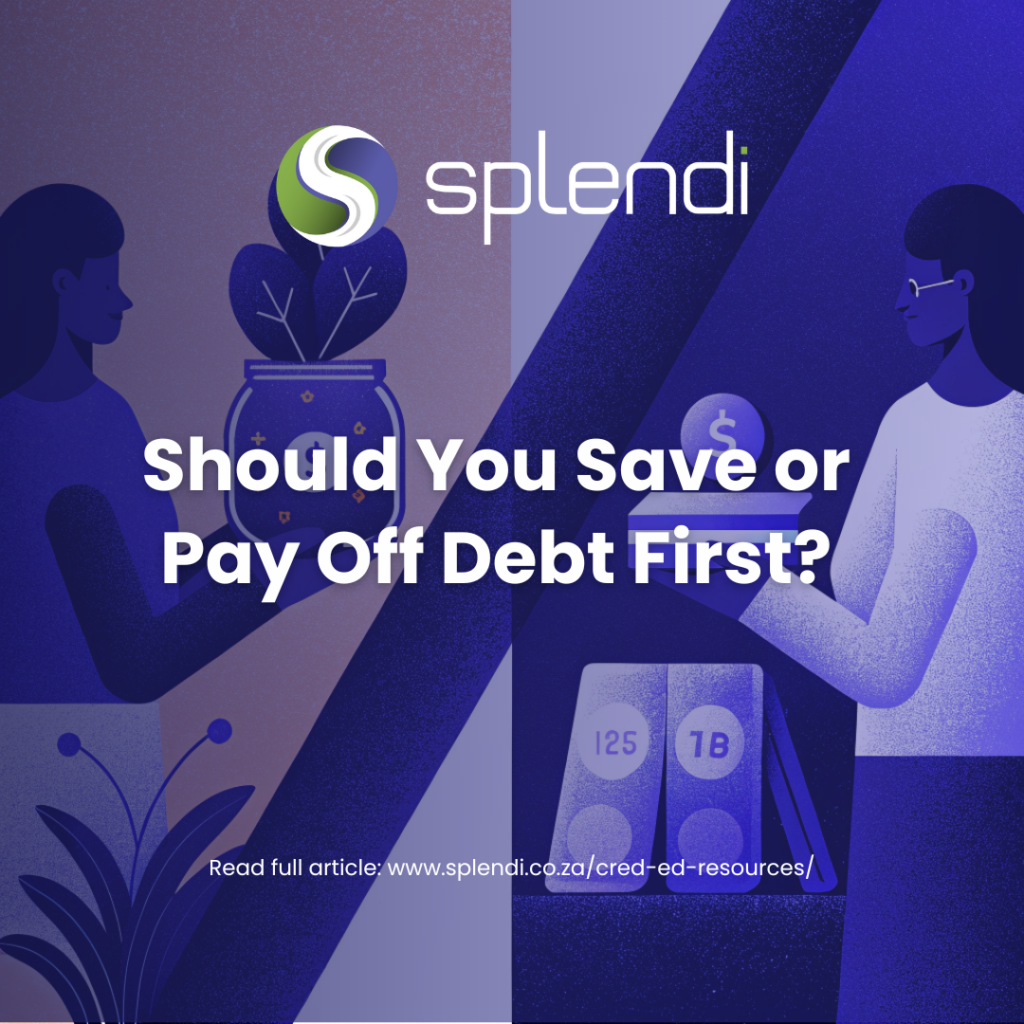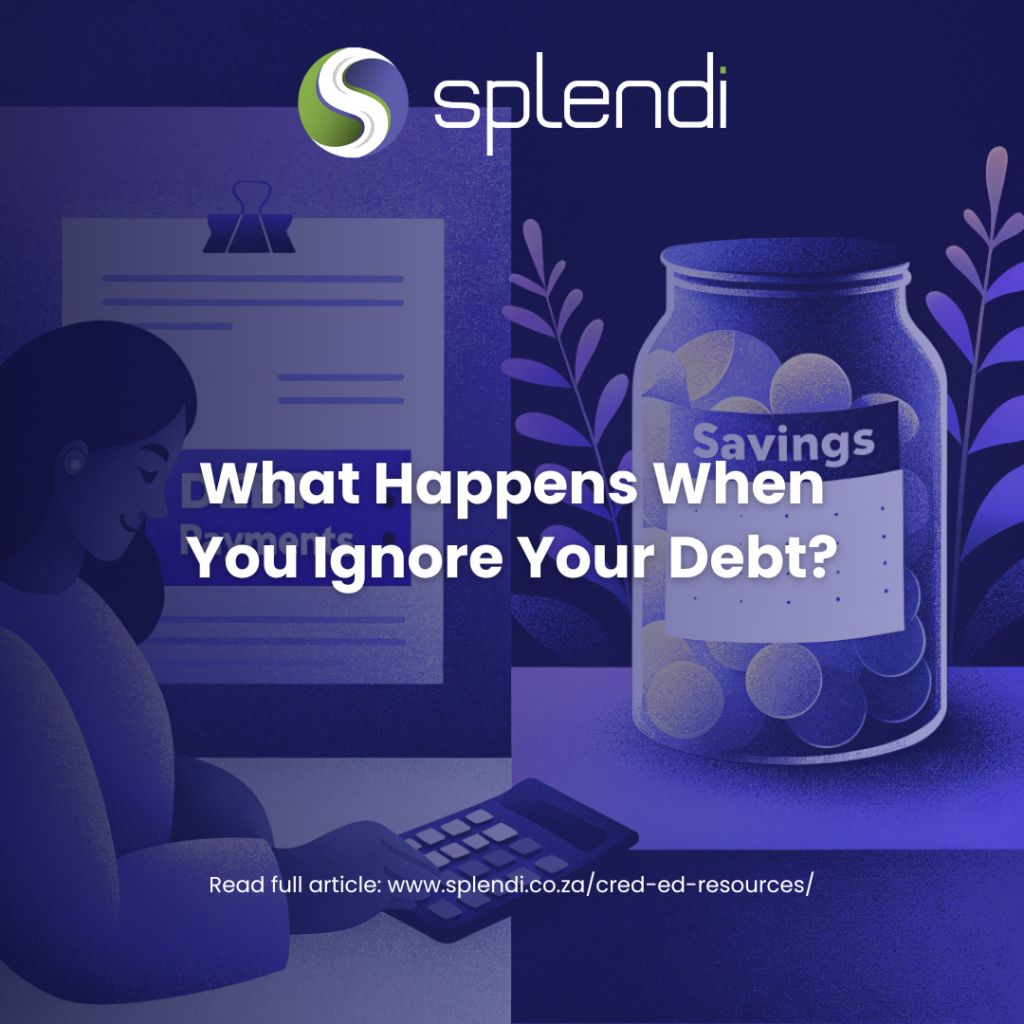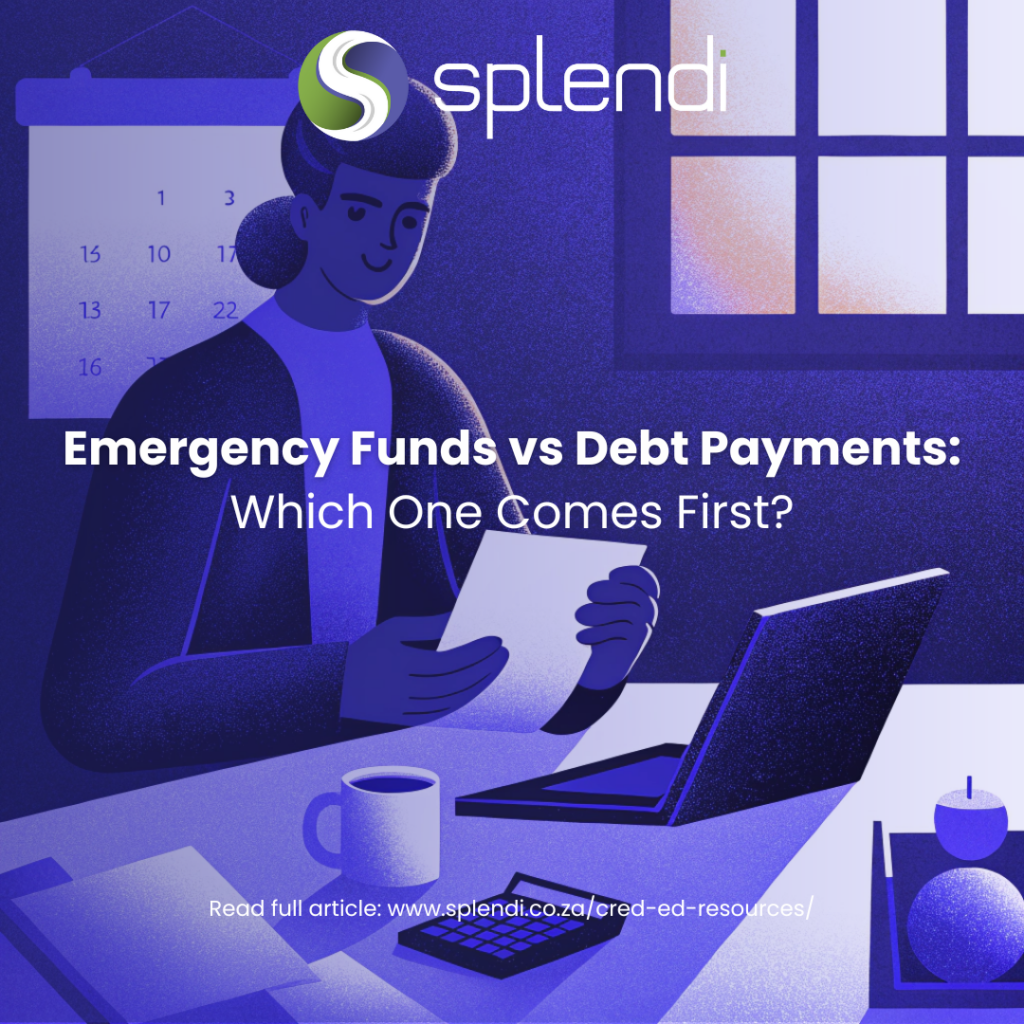July is National Savings Month in South Africa, a time to reflect on our money habits and make smarter choices for our future. One of the biggest questions people ask during this time is: Should I save money or pay off debt first?
The truth is there’s no one-size-fits-all answer. It depends on your financial situation, the kind of debt you have, and your short-term needs. In this post, we’ll walk you through how to think about it so you can make the right decision for your goals.
Step 1: Build a Basic Emergency Fund First
Before focusing on anything else, your first goal should be to set aside a small emergency fund. This is money for unexpected expenses like car repairs, medical costs, or a month of essentials if you lose your income.
Why it matters:
Without any savings, you’re likely to turn to credit again when life happens, which keeps the debt cycle going.
How much is enough?
Start with at least R5,000 to R10,000 if you can. This doesn’t have to happen overnight. Build it slowly, even R200 a week adds up.
Step 2: Understand the Type of Debt You Have
Not all debt is equally urgent to pay off. Start by understanding the difference between high-interest and low-interest debt.
- High-interest debt: Credit cards, personal loans, short-term loans
Interest rates can be as high as 20–30% or more. - Low-interest debt: Student loans, home loans, car finance
These usually have longer terms and lower interest.
Tip: The higher the interest, the faster it grows. High-interest debt should usually be paid off as quickly as possible because it costs you more in the long run.
Step 3: Do the Math
If your debt interest is higher than what you’d earn from saving, focus more on debt. For example:
- Your credit card charges 22% interest per year.
- A savings account offers 5% interest per year.
You’re losing more money than you’re gaining by saving. In this case, you should aggressively pay off debt first after you’ve built your emergency fund.
Step 4: Consider Your Peace of Mind
Money isn’t just about numbers. It’s also emotional. Some people feel more secure knowing they have savings, while others feel more at ease when their debt is going down.
Ask yourself:
- Do I stress more about having no savings or about my debt balance?
- Which one keeps me up at night?
It’s okay to balance both. For example, you might save R500 and pay R500 extra toward your debt each month. Just make sure you’re making real progress in both areas.
Step 5: Set a Clear Plan and Stick to It
Once you’ve decided on your focus, write it down and stay consistent. Even if it’s a small amount, consistency over the next six months will make a big difference.
Example plan:
- Save R300/month to build emergency savings
- Pay R700/month toward your highest-interest debt
Review it every month and adjust based on your income and expenses.
Whether you choose to save first or tackle your debt, the key is to be intentional. Do what works for your situation and don’t be afraid to adjust as your life changes.
Splendi can help you track your credit, dispute incorrect listings, and stay on top of your financial progress. Register or log in to Splendi to start taking control of your credit today.
Disclaimer: This article is for informational purposes only and should not be construed as financial advice. Splendi does not provide personalised financial, investment, legal, or tax advice. Always consult with a qualified financial advisor for guidance tailored to your individual circumstances.




